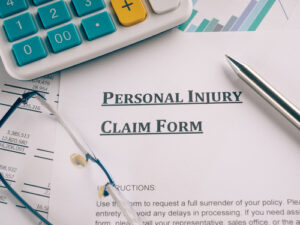Defining Pain and Suffering
September 20, 2018
 Most people have heard of the term ‘pain and suffering,’ and many understand that such language is often associated with personal injury lawsuits. Very few, however, know the technical definitions and types of pain and suffering that victims can pursue during such cases.
Most people have heard of the term ‘pain and suffering,’ and many understand that such language is often associated with personal injury lawsuits. Very few, however, know the technical definitions and types of pain and suffering that victims can pursue during such cases.
How Do Pennsylvania Courtrooms Define Pain and Suffering?
Courtrooms in Pennsylvania recognize two distinct types of pain and suffering: physical and mental. Physical pain and suffering is described as the physical discomfort the victim experiences as a result of the injury. Mental pain and suffering is described as the emotional impacts of the injury such as anxiety, shock and emotional distress. Personal injuries often result in physical and mental pain and suffering, but Pennsylvania courts don’t have any set standard by which to quantify such ailments. Judges must use the facts and circumstances surrounding the case, expert testimony and their own discretion to calculate a reasonable financial award for the symptoms the victim has suffered. Judges typically base their decisions on whether the plaintiff’s testimony is consistent, whether the plaintiff appears to be exaggerating his injuries, whether the person seems credible or likable and whether the jury thinks the plaintiff lied about anything.
Contact Pennsylvania Personal Injury Attorneys at Purchase, George & Murphey Today
An experienced personal injury attorney can help injured victims explain to a jury or judge the seriousness of your injuries. Enlisting the help of medical expert witnesses can help urge juries and judges to award a fair amount of compensation that matches the seriousness of the injury. If you need a trusted attorney on your side during a personal injury lawsuit, then we invite you to reach out to the proven lawyers at Purchase, George & Murphey today. Complete our online contact box to hear back from us promptly.
The articles on this blog are for informative purposes only and are no substitute for legal advice or an attorney-client relationship. If you are seeking legal advice, please contact our law firm directly.